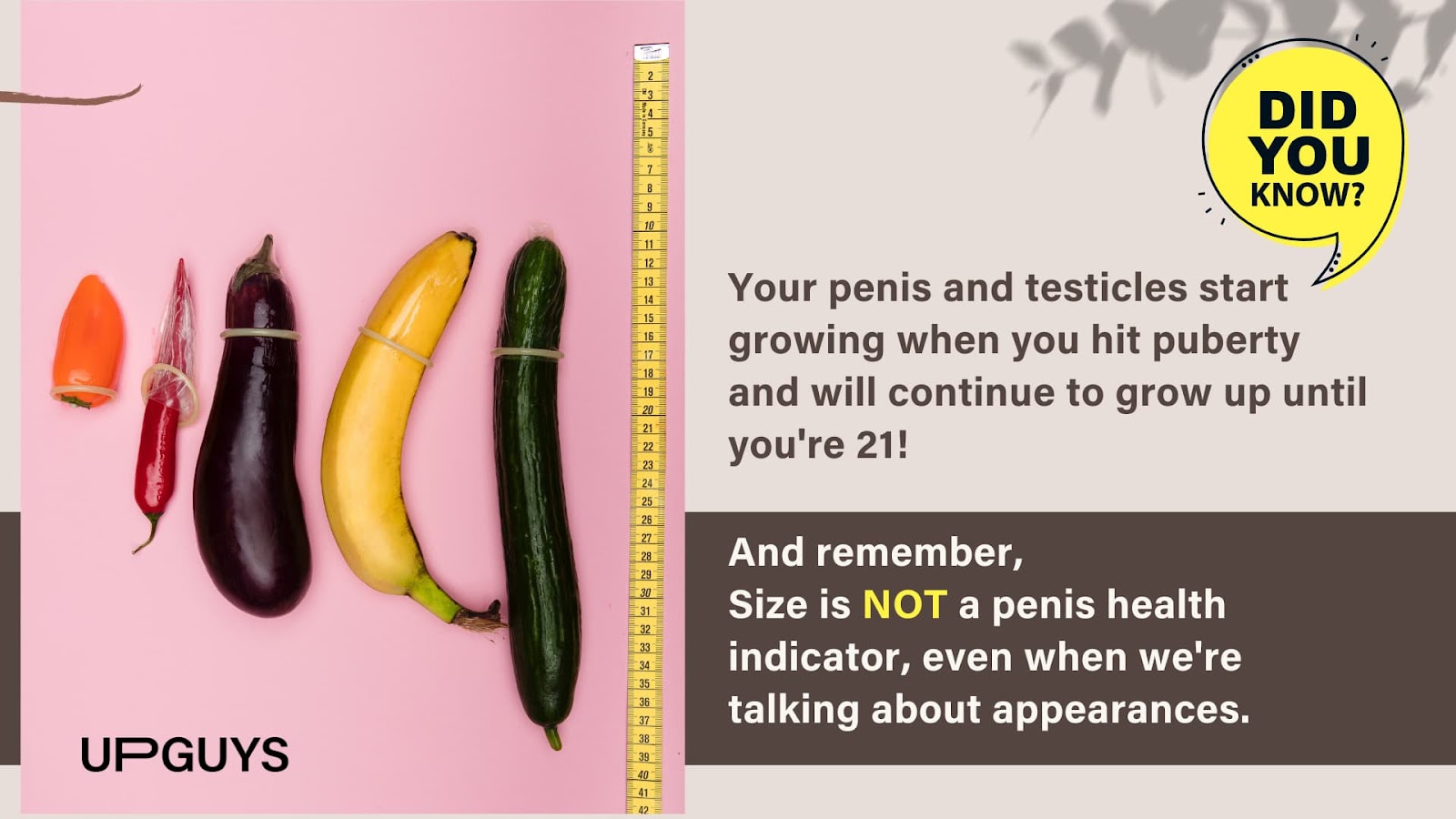How To Know If Your Penis Is Healthy?


A penis can be big or small, curvy or bumpy, and be completely healthy and normal. A healthy penis is free of lesions and warts, with a normal discharge.
There are four parameters to measure when you want to know if your penis is healthy or not:
- Penis appearance
- Penis function
- Penis fluids quality
- Penis smell
Healthy penis appearance
All healthy penises, regardless of their size or unique look, and whether they're circumcised or not, share specific characteristics.
Healthy penis colour
A healthy penis is usually the same colour as its surrounding skin. However, it's entirely normal for it to be a few shades lighter or darker.
The colour of your penis can change depending on its blood flow at any given time. Yet, a noticeable change in the colour of your penis is worth a check-up.
 The true colour of a healthy penis
The true colour of a healthy penis
Healthy penis shape
As we mentioned before, penises come in lots of different shapes. Some have a wide base and narrow tip, while others might be wide or narrow at different points.
A penis can also lean a little to the left or right. If it has always been this way, that's normal. However, if you suddenly develop a bend and have painful erections, it's best to talk to your doctor.
The bottom line is that as long as your penis works and feels good, and you feel no lump in it, you're good to go.
Healthy penis size
Healthy penises come in all sizes, so put down the measuring tape. Size is NOT a penis health indicator, even when we're talking about appearances.
Did you know that your penis and testicles start growing when you hit puberty and will continue to grow up until you're 21?
So a healthy penis looks free of warts, blisters, bumps, and sores; And shape and size have nothing to do with its health.
 Size of a penis
Size of a penis
Healthy penis functions
Your penis has two main functions:
1- Urination
2- Ejaculation
Urination is easy and painless with a healthy penis. When urinating, you should have a strong urine flow and feel no irritation (tingling or burning sensation).
Ejaculation is a by-product of erection and reaching orgasm. Ejaculation with a healthy penis is easy and free of pain.
Read more: Supporting Your Husband Through Erectile Dysfunction
Penis fluids quality
A person with a healthy penis ejaculates around a teaspoon's worth of semen. Healthy semen has a whitish colour, although some may have a yellowish tone, which is normal as well.
Any sign of blood or greenish tone is not typical for semen, so if you experience it, get your penis checked out.
Semen can have a variety of textures based on your diet, time from your last ejaculation, and how aroused you are. Sometimes the semen can be thick or a bit clumpy, or you may ejaculate more than a teaspoon, and that's no cause for alarm.
Read more: Dealing With Cumming Too Much: Understanding, Causes, And Solutions
Penis smell
It's normal for your clean penis to have an odour. Penis, like most of your body parts, is covered in sweat glands, and that's why it might have a slightly funky smell.
Moreover, your penis spends most of the day in your underpants, confined in your pants, and there is little fresh air there, so the smell tends to stay and stick.
However, if you feel the natural scent of your penis has changed or grown stronger, it's best to get it checked out, as it might be a sign of an underlying disease.
The same goes for the scent of your semen. Since semen is slightly alkaline, many associate its smell with other alkaline substances, like bleach or ammonia. A change in the smell of your semen is also worth a check-up, particularly if it smells pungent, as it might indicate an infection.
 Penis smell
Penis smell
This article is written for informational purposes only and does not constitute medical advice. The information provided in the articles cannot and should not replace advice from a healthcare professional. Talk to your healthcare provider about any physical or mental health concerns or the risks and benefits of any treatment or medication.





